Posts:
At the start of my Independent Study, I had little experience of blog-use or blog-creation, and initially I tried to post all materials related to my study – such as the BUAD 490 Independent Study Proposal, Assignments, and Questions to Address. My Mentor – Professor Sandra Chrystal – and I discussed the direction of my blog and concluded that we would use the blog more as a knowledge management/research tool. Therefore I deleted some of the earlier posts that are more an “administrative-type feature” of my BUAD 490 class.
Photos:
Deciding on whether or not to have my photo on my blog took some consideration. Initially, I posted my photo but removed it later because I thought it could pose a risk to personal safety. For a time, I posted my logo instead. Recently, I replaced the logo with the photo again because most corporate blogs appear to have a photo of the blog author. The presence of the photo is important in communicating credibility – the author takes responsibility for blog posts.
 Logo: Fiona Torrance
Logo: Fiona Torrance In the design of the logo is a 2 B (for Biz Blog) and part of the B becomes an R for Review. The circle completes the design and joins part of the B and R creating an extended handle of a "magnifying glass" (also signifying the "Review" of Business/Corporate Blogs).
Advertising:
Blogger.com give registered users the option of AdSense – to allow Google to place advertisements on the blog in exchange for payments. I decided not to have advertising on the Biz Blog Review site because I felt that advertising would detract from the content of my site, and because I wanted to remain independent from advertising companies. Since I am reviewing corporate blogs, the presence of corporate advertisements on my site may communicate an influence that I want to avoid.



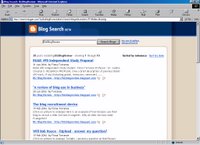


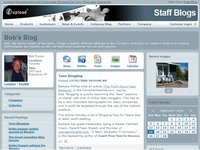
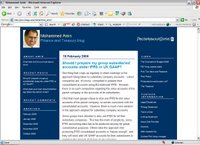
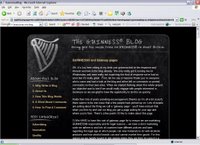

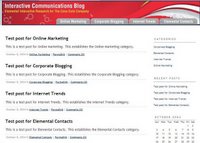
 View these source blogs:
View these source blogs: